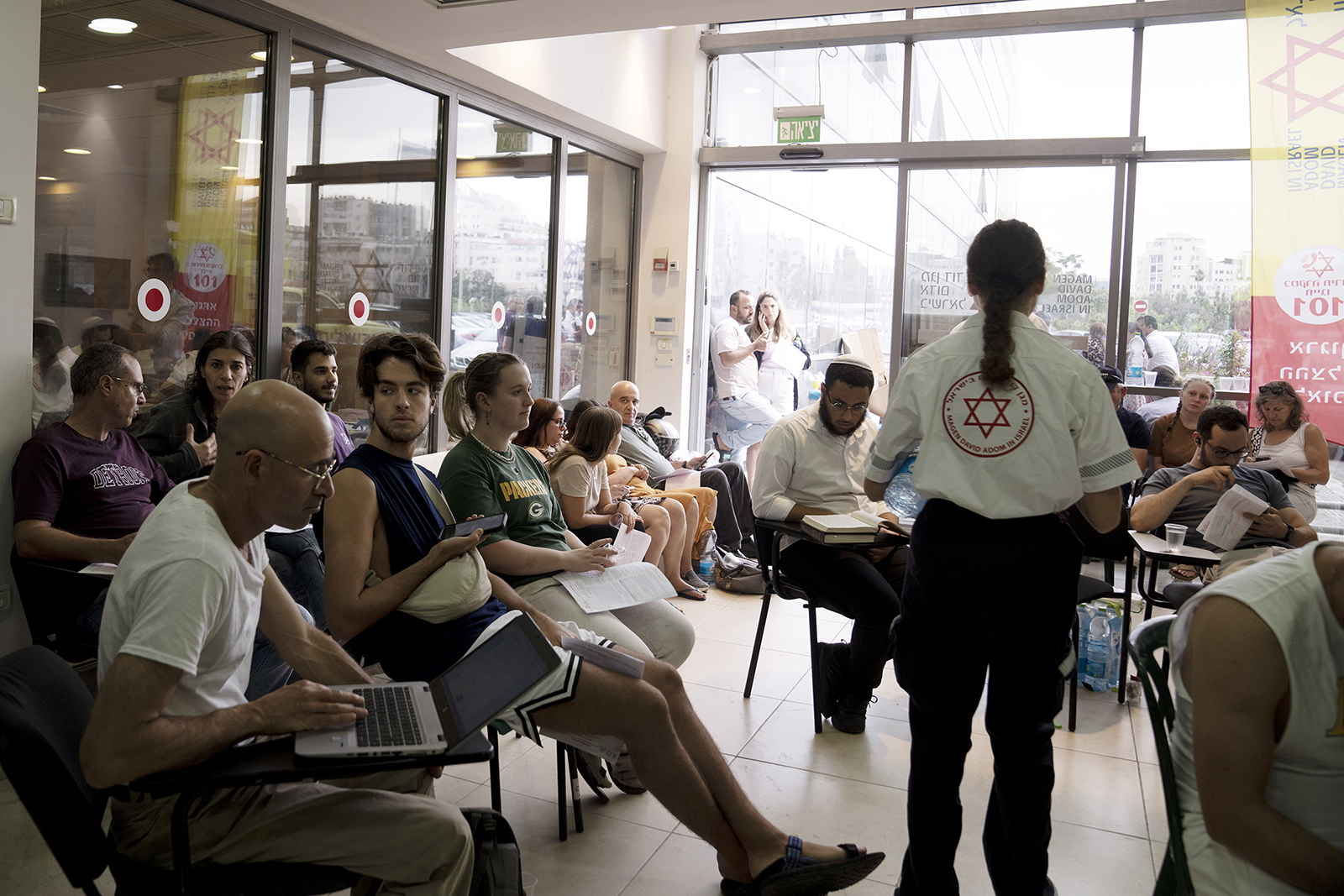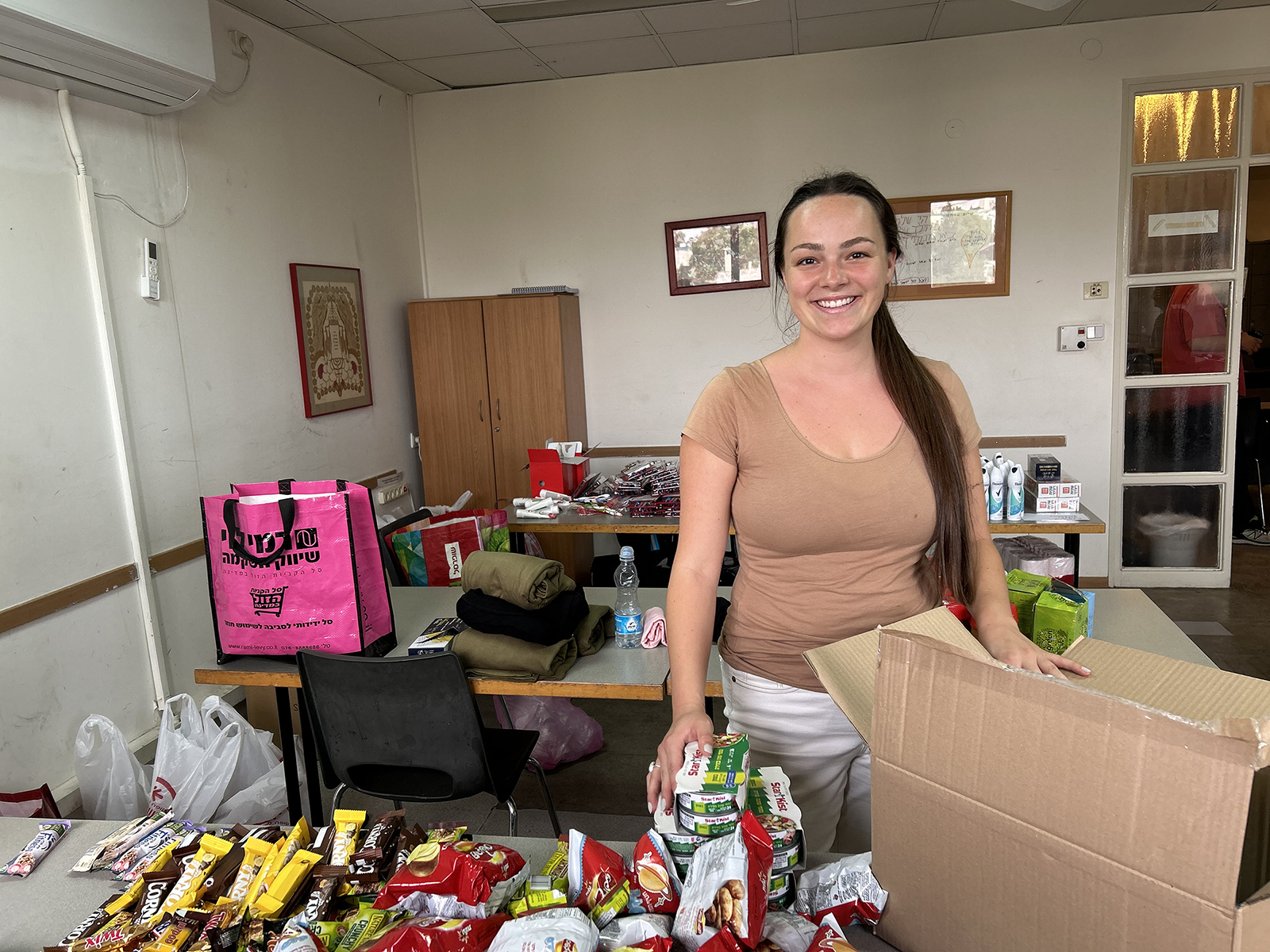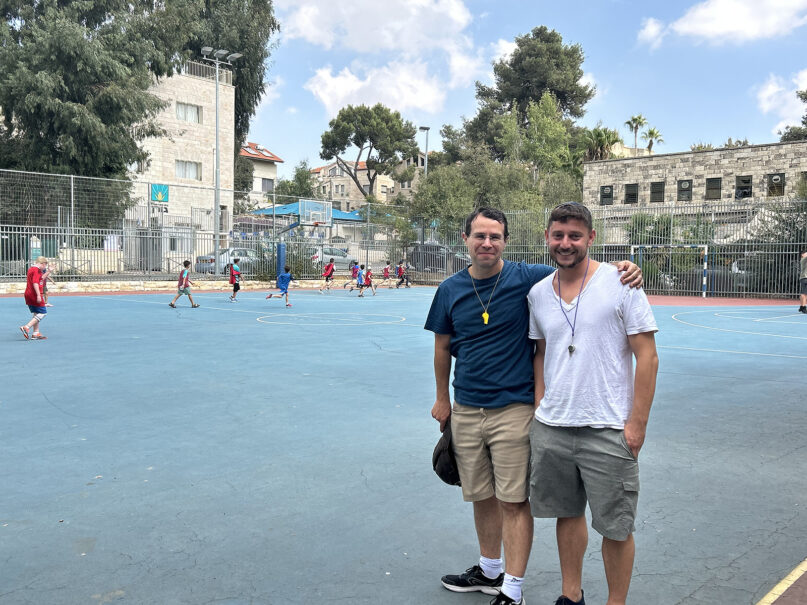JERUSALEM (RNS) — When Suzanne Dekel was asked to create up to 1,000 army-green “tzitzit” — the fringed ritual garments worn by Jewish men and some women — for Israeli soldiers, she knew the task would be daunting.
But Dekel, a dyer by profession, never hesitated.
“It was never a question,” said Dekel, who was eager to help meet the needs of some of the nearly 500,000 Israeli soldiers deployed all over Israel in the days after the Palestinian group Hamas launched a terrorist attack from Gaza. “Right now I have a clear mission, and that is to do what needs to be done so others can do what they need to do.”
The soldiers, she said, aren’t just fighting for Israel. “They are fighting as Jewish soldiers, for our homeland.”
Dekel, who volunteered her services, is gratified to be part of the country’s homefront at a time of war but insists she is “just a cog” in the larger war effort.
“Kids are making drawings for the soldiers. Other people are organizing housing for displaced people or food for soldiers and the needy. And our synagogue is sending supplies like towels, sandwiches and tampons” to army bases, she said.
In a country of fewer than 10 million people, just about everyone in Israel knows someone personally touched by Saturday’s series of Hamas terror attacks. Many more have loved ones in uniform.
Many are channeling their anxiety into volunteerism. Both the need and the response have been enormous, said Nicky Cregor, director of the city of Jerusalem’s Unit for Volunteer Services.
“There is nothing that will not be taken care of by the amazing residents of this city. Despite the sadness, people ask, ‘How can we help someone else?’ The same is true throughout the country,” she said.
Cregor credits social networks like WhatsApp for facilitating the widespread volunteerism. “I can’t say enough about the absolutely incredible power of bringing people together via WhatsApp groups. There’s a group of 755 people just devoted to babysitting,” she noted.
When a neighborhood WhatsApp group put out a call for local residents willing to wash the clothes of some of the 2,000 evacuees being housed in Jerusalem hotels, within minutes dozens had volunteered, Cregor said.

Israelis wait to donate blood at Magen David Adom emergency service in Jerusalem, following an attack by Hamas militants on Israel, Saturday, Oct. 7, 2023. (AP Photo/Maya Alleruzzo)
Throughout the country, people of all faiths are lending a hand.
Within hours of the Hamas attack, thousands stood in line for hours to donate blood. Hundreds of restaurants have donated food to soldiers who have been eating nothing but field rations (IDF kitchens have been overwhelmed by the arrival of so many reservists). Non-kosher restaurants in mostly secular Tel Aviv have koshered their kitchens in order to cook and send kosher meals to security forces and first responders.
In Beit Jann, a Druze village in Northern Israel, residents packed hundreds of boxes of supplies for soldiers.
In the southern city of Eilat, residents opened their homes to 10,000 refugees from Southern Israel near the Gaza border.
On a more somber note, dozens of young men have volunteered to dig graves at cemeteries overwhelmed by the staggering number of bodies in need of burial.
Evangelical Christian and diaspora Jewish organizations and communities have also stepped up. The International Fellowship of Christians and Jews launched an emergency war appeal and is supporting children in bomb shelters. The Jewish Federation of North America and partners are raising money to support terror victims, rebuild damaged infrastructure and address war-related stress, while individuals and synagogues are purchasing bullet-proof vests and other items.
There are also efforts underway to get Israelis back home from abroad, including soldiers. One Orthodox Jew paid for 250 plane tickets to enable called-up reservists to return to Israel.
Due to the timing of Hamas’ military operation, which began at the end of the Jewish holiday of Sukkot, tens of thousands of Jewish and Christian tourists from abroad were in Israel.

Samantha Cooper, a student at the Pardes Institute of Jewish Studies in Jerusalem, launched a student-run project to provide Israeli soldiers and Bedouin families in Southern Israel with food and other essentials during wartime. Photo by Michele Chabin
Adam Gabeli, an evangelical minister at the Westwood Community Church in Vancouver, British Columbia, had arrived several days earlier for an annual Feast of the Tabernacles event organized by the International Christian Embassy Jerusalem.
“With heavy and broken hearts we saw what the residents of Southern Israel live with,” Gabeli said on Monday. “It’s given us a clear eyewitness perspective that we will share back home in Canada.” Amid the rockets “our faith has been able to keep us in a place of peace.”
Shulamis Hes, a librarian from Teaneck, New Jersey, had arrived in Israel a couple of days before Sukkot to be with family who are residents. But her flight back to the United States, scheduled for Oct. 12, was canceled, and she finds herself stranded in a war zone.
While she’s feeling some anxiety, she is also grateful to be in Israel during what she considers a “historic time for Israel and the world.”
Despite the uncertainty of the war, “I feel very privileged that God put me here at this time,” she said. “I’m exactly where I’m supposed to be.”





